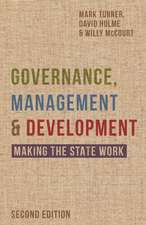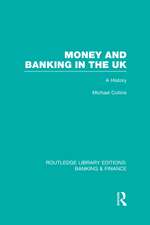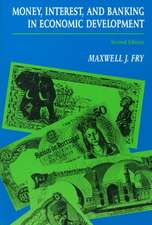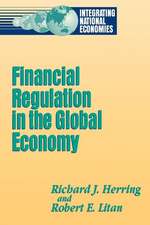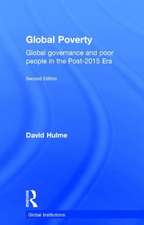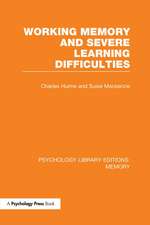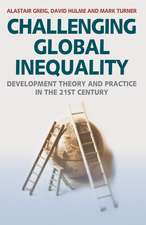Finance Against Poverty: Volume 1
Autor Hulme David, Paul Mosleyen Limba Engleză Paperback – 12 sep 1996
Preț: 484.86 lei
Preț vechi: 570.42 lei
-15% Nou
Puncte Express: 727
Preț estimativ în valută:
92.79€ • 100.76$ • 77.94£
92.79€ • 100.76$ • 77.94£
Carte tipărită la comandă
Livrare economică 22 aprilie-06 mai
Preluare comenzi: 021 569.72.76
Specificații
ISBN-13: 9780415124294
ISBN-10: 0415124298
Pagini: 240
Dimensiuni: 156 x 234 x 13 mm
Greutate: 0.33 kg
Ediția:1
Editura: Taylor & Francis
Colecția Routledge
Locul publicării:Oxford, United Kingdom
ISBN-10: 0415124298
Pagini: 240
Dimensiuni: 156 x 234 x 13 mm
Greutate: 0.33 kg
Ediția:1
Editura: Taylor & Francis
Colecția Routledge
Locul publicării:Oxford, United Kingdom
Public țintă
Postgraduate and UndergraduateCuprins
Preface 1 WHY DEVELOPMENT FINANCE INSTITUTIONS EXIST Market failure versus government failure 2 WHY CREDIT MARKETS FAIL THE POOR 3 FINANCIAL PERFORMANCE AND SUSTAINABILITY The role of ‘innovative credit institutions’ in the capital market 4 THE IMPACT ON PRODUCTION AND TECHNOLOGY 5 FINANCE FOR THE POOR Impacts on poverty, vulnerability and deprivation 6 THE POLITICS OF FINANCIAL INTERMEDIATION FOR THE POOR 7 THE MANAGEMENT OF FINANCIAL INSTITUTIONS FOR THE POOR 8 GROWTH VERSUS EQUITY? 9 CONCLUSIONS
Notă biografică
David Hulme is Professor of Development Studies and Director of the Institute for Development Policy and Management at the University of Manchester. Paul Mosley is Professor of Economics and Director of the International Development Centre at Reading University.
Descriere
Essential reading for all those interested in development, poverty-reduction, social welfare and finance. Volume one offers a detailed assessment of theory and policy whilst volume two presents case studies from seven developing countries.

